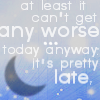
Books 2011: 57-59
57. Suzanne McLeod, The Sweet Scent of Blood.
First book by this author. Urban fantasy set in London. Entertaining, and relatively surprising, but I am perhaps a little down on the appearance of vampires of late. (Fortunately, the vampires do not appear as the love interest. Indeed, there does not appear to be a Main Love Interest, which is quite quite marvellous.)
non-fiction
58. Liza Picard, Dr. Johnson's London: Everyday Life in London 1740-1770. Phoenix, London, 2000.
An interesting and varied description of 18th century London. I was particularly interested in the description of London's water. For a work of history, light, lively, and entertaining.
59. Ian McBride, Eighteenth Century Ireland: The Isle of Slaves. New Gill History of Ireland, Gill & Macmillan Ltd., Dublin, 2009.
An interesting overview of the century between the Williamite settlement and the risings of 1798. The eighteenth century in Ireland is often passed lightly over, save for brief remarks upon penal legislation and 1798: to read a serious overview of the century is enlightening, to say the least.
This book places Ireland in a European context, both in terms of the Jacobite diaspora and connections with the Catholic hierarchy, and the educated Anglican and Presbyterian connections with wider European Enlightment thought. It discusses penal legislation (mostly finally repealed by 1793) and agrarian unrest in reasonable detail, and is concerned to place the unrest of the 1790s in its European context, and connect Irish thought to the influence of the ratification of the American constitution in 1788 and the actions of the National Assembly (former Third Estate) in Paris the following year.
McBride assumes a degree of knowledge concerning relations with Westminster throughout the century, wider European wars, and Grattan's parliament at College Green from 1782, that I don't possess. But much is clear from context, and in a book already 430 pages long, more detail can hardly be expected.
I enjoyed reading this more than I had expected to, and learned much that I did not know.
My reading seems to have slowed down lately. That's probably because I'm choosing to read lengthy histories of 400 pages, or more: one might legitmately find oneself slowed by that kind of endeavour. (Imagine here an image of a Dalek, but instead of a speechbubble reading EXTERMINATE, this one says EDUCATE.)
I'm presently reading Joanna Russ's The Female Man, and finding it hard going. So much of what must have been radical in 1970 seems... well, obvious, or even a little (by my lights) conservative. True equality, unthinking equality, is still, of course, a radical proposition. Nonetheless, there's a odd sort of cognitive dissonance in reading a book written as a shocking work of literature, one intended to provoke, (and moreover, a book which is conscious and intentional in attempting to provoke) and being unshocked and unprovoked.
Book, I am glad you were written. And I find your weird slipstream-style narrative interesting, and in terms of technique, fascinating. But I cannot read you and say Yes! This!, for it is wonderful how much things have changed in forty years.
Some things haven't, and in some ways you are still immensely... no, intensely relevant. But you are a piece of cultural history now, interesting book! And it is because of the weight of cultural history that I intend to read you right through to the end, rather than stopping on page 145 of the latest Gollancz edition, because - to be frank, O interesting book! (for I'm sure you'd appreciate frankness) - you don't pull at my heart.
Almost, despite the forty years that lie between us, I wish you did.